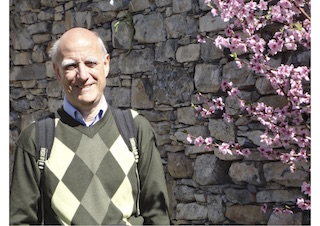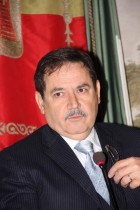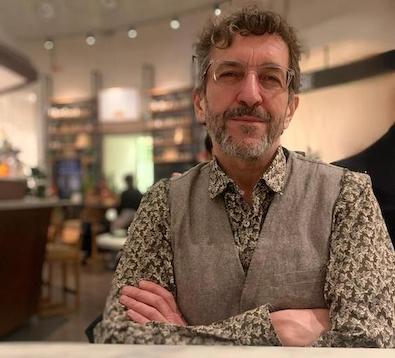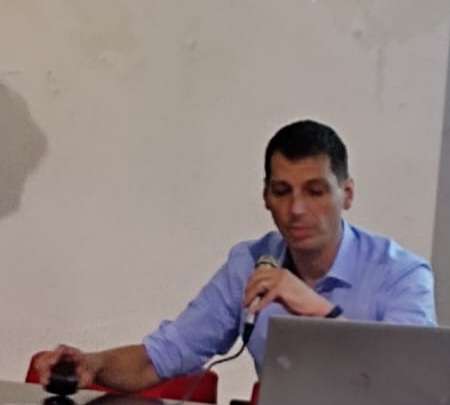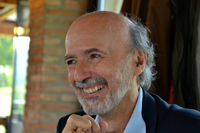Studying at the University of Verona
Here you can find information on the organisational aspects of the Programme, lecture timetables, learning activities and useful contact details for your time at the University, from enrolment to graduation.
Academic calendar
The academic calendar shows the deadlines and scheduled events that are relevant to students, teaching and technical-administrative staff of the University. Public holidays and University closures are also indicated. The academic year normally begins on 1 October each year and ends on 30 September of the following year.
Course calendar
The Academic Calendar sets out the degree programme lecture and exam timetables, as well as the relevant university closure dates..
| Period | From | To |
|---|---|---|
| Semestrino IA | Sep 28, 2015 | Nov 14, 2015 |
| Semestrino IB | Nov 16, 2015 | Jan 16, 2016 |
| Semestrino IIA | Feb 22, 2016 | Apr 16, 2016 |
| Semestrino IIB | Apr 18, 2016 | Jun 4, 2016 |
| Session | From | To |
|---|---|---|
| Sessione invernale | Jan 18, 2016 | Feb 20, 2016 |
| Sessione estiva | Jun 6, 2016 | Jul 30, 2016 |
| Sessione autunnale | Sep 1, 2016 | Sep 30, 2016 |
| Session | From | To |
|---|---|---|
| Sessione estiva | Jul 5, 2016 | Jul 6, 2016 |
| Sessione autunnale | Nov 22, 2016 | Nov 23, 2016 |
| Sessione invernale | Apr 3, 2017 | Apr 8, 2017 |
| Period | From | To |
|---|---|---|
| Festa di Ognissanti | Nov 1, 2015 | Nov 1, 2015 |
| Festa dell'Immacolata | Dec 8, 2015 | Dec 8, 2015 |
| Vacanze di Natale | Dec 23, 2015 | Jan 6, 2016 |
| Vancanze di Pasqua | Mar 24, 2016 | Mar 29, 2016 |
| Festa della Liberazione | Apr 25, 2016 | Apr 25, 2016 |
| Festa dei Lavoratori | May 1, 2016 | May 1, 2016 |
| Festa del S. Patrono S. Zeno | May 21, 2016 | May 21, 2016 |
| Festa della Repubblica | Jun 2, 2016 | Jun 2, 2016 |
| Vacanze estive | Aug 8, 2016 | Aug 15, 2016 |
Exam calendar
Exam dates and rounds are managed by the relevant Culture and Civilisation Teaching and Student Services Unit.
To view all the exam sessions available, please use the Exam dashboard on ESSE3.
If you forgot your login details or have problems logging in, please contact the relevant IT HelpDesk, or check the login details recovery web page.
Should you have any doubts or questions, please check the Enrollment FAQs
Academic staff
 bernard.aikema@univr.it (per tutti), aikemaforstudents@gmail.com (per studenti)
bernard.aikema@univr.it (per tutti), aikemaforstudents@gmail.com (per studenti)
 +39 045802 8197
+39 045802 8197
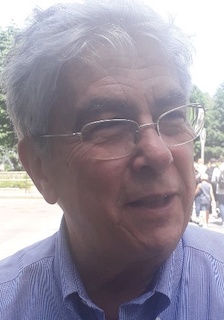
Avezzu' Guido
 guido.avezzu@univr.it
guido.avezzu@univr.it
 augusto.barbi@univr.it
augusto.barbi@univr.it

Bassetti Massimiliano
 massimiliano.bassetti@univr.it
massimiliano.bassetti@univr.it
 045802 8376
045802 8376
 alberto.cavarzere@univr.it
alberto.cavarzere@univr.it
 daniela.ceoletta@univr.it
daniela.ceoletta@univr.it

Chiecchi Giuseppe
 giuseppe.chiecchi@univr.it
giuseppe.chiecchi@univr.it
 +39 045802 8117
+39 045802 8117

Mastrocinque Attilio
 attilio.mastrocinque@univr.it
attilio.mastrocinque@univr.it
 +39 045802 8386
+39 045802 8386
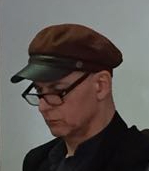
Pasini Roberto
 pasini.roberto@univr.it
pasini.roberto@univr.it
 +39 045802 8121
+39 045802 8121
 dino.piovan@univr.it
dino.piovan@univr.it
 alberto.scandola@univr.it
alberto.scandola@univr.it
 domenico.secondulfo@univr.it - domenico.secondulfo3@gmail.com
domenico.secondulfo@univr.it - domenico.secondulfo3@gmail.com
Tani Stefano
 stefano.tani@univr.it
stefano.tani@univr.it
 +39 045802 8110
+39 045802 8110

Zanon Tobia
 tobia.zanon@univr.it
tobia.zanon@univr.it
Study Plan
The Study Plan includes all modules, teaching and learning activities that each student will need to undertake during their time at the University.
Please select your Study Plan based on your enrollment year.
1° Year
| Modules | Credits | TAF | SSD |
|---|
One course to be chosen among the following2 course to be chosen among the followingCertificate of the CLA at level B2 in Italian for students of the University of Augsburg and in German for students of the University of Verona2° Year activated in the A.Y. 2016/2017
| Modules | Credits | TAF | SSD |
|---|
One course to be chosen among the following| Modules | Credits | TAF | SSD |
|---|
One course to be chosen among the following2 course to be chosen among the followingCertificate of the CLA at level B2 in Italian for students of the University of Augsburg and in German for students of the University of Verona| Modules | Credits | TAF | SSD |
|---|
One course to be chosen among the followingLegend | Type of training activity (TTA)
TAF (Type of Educational Activity) All courses and activities are classified into different types of educational activities, indicated by a letter.
Italian literature (m) (2015/2016)
Teaching code
4S02260
Credits
12
Coordinator
Giuseppe Chiecchi
Language
Italian
Also offered in courses:
- Italian Literature II [Sede VR] of the course Master’s degree in Historical Studies (interuniversity)
The teaching is organized as follows:
I MODULO PARTE (I)
Credits
6
Period
Semestrino IIA
Academic staff
Giuseppe Chiecchi
Learning outcomes
Module: I MODULO PARTE (I)
-------
Textuality as a place of knowledge and verification of literary specificity, in its formal, historical, symbolic and thematical connections, in the background of the Italian and Western civilization.
Module: II MODULO PARTE (P)
-------
Textuality as a place of knowledge and verification of literary specificity, in its formal, thematical, historical, symbolic connections, in the background of the Italian and Western civilization.
Program
Module: I MODULO PARTE (I)
-------
Prerequisites: Knowledge of literary tradition; ability in orientation and historical contextualization.
Course content: The Dolce Stil Novo: poetics and poetry.
Textbooks:
-Poesie dello Stilnovo, a cura di Marco Berisso, Milano, BUR, 2006 (during the course will be given an anthology of poems ).
-DONATO PIROVANO, The Dolce Stil Novo, Roma, Salerno Editrice, 2014.
-Notes from the lessons (with bibliographic and critical supplementary indications).
Teaching methods: lectures. Oral exercises in reading and interpretation of texts.
Module: II MODULO PARTE (P)
-------
Prerequisites: knowledge of literary tradition; ability to orientation and historical contextualization.
Course contents: 2. Part 2 (prof. Fabio Danelon, 36 hours)
The modern novel in Italy Dio ne scampi dagli Orsenigo of Vittorio Imbriani and Mastro-don Gesualdo of Giovanni Verga. Stylistic paths and thematic itineraries.
Textbooks: part two:
- Vittorio Imbriani, Dio ne scampi dagli Orsenigo (ed. of Romanzi di Imbriani a cura di Fabio Pusterla, Milano, Garzanti is advised; or Dio ne scampi dagli Orsenigo, a cura di Sandra Carapezza, Napoli, D’Auria, 2011; or Dio ne scampi dagli Orsenigo, a cura di Siriana Sgavicchia, Ravenna, Allori, 2004); Giovanni Verga, Mastro-don Gesualdo ( l’ed. a cura di Giulio Carnazzi, Milano, Rizzoli-BUR is advised; or a cura di Giancarlo Mazzacurati, Torino, Einaudi; or a cura di Carla Riccardi, Milano, Mondadori; or a cura di Nicola Merola, Milano, Garzanti). N.B. For both novels, any other edition, provided unabridged and commented on.
-Notes of the lessons.
- For an orientation on the 19th century novel, students are required to study at least one of the following volumes:
Renato Bertacchini, Il romanzo italiano dell’Ottocento: dagli scottiani a Verga, Roma, Studium, 1996; Matteo Palumbo, Il romanzo italiano da Foscolo a Svevo, Roma, Carocci, 2007; Michele Colombo, Il romanzo dell’Ottocento, il Mulino, 2011 (the last for the implications of language history).
In addition to the above mentioned introductions of novels: Sandra Carapezza, «Mai, inteso nominare». La citazione in «Dio ne scampi dagli Orsenigo» (pp. 123-144) and Gian Paolo Marchi, Citazioni e autocitazioni nel «Mastro-don Gesualdo» (pp. 145-166), in: Tessere di trame. La citazione nel romanzo italiano dell’Ottocento, a cura di Fabio Danelon, «Parole rubate», 11, giugno 2015 (freely downloadable file from: http://www.parolerubate.unipr.it/); and at least one of the following essays and/or volumes (one for Imbriani, one for Verga): Francesco Spera, Il principio dell’antiletteratura: Dossi, Faldella, Imbriani, Napoli, Liguori, 1976; Gabriella Alfieri, La lingua “sconciata”. Espressionismo ed espressivismo in Vittorio Imbriani, Napoli, Liguori, 1990; Studi su Vittorio Imbriani, a cura di Rosa Franzese ed Emma Giammattei, Napoli, Guida, 1990; Antonio Palermo, Ottocento italiano, L’idea civile della letteratura. Cattaneo, Tenca, De Sanctis, Carducci, Imbriani, Capuana, Napoli, Liguori, 2000; Fabio Danelon, «Le pesche non s’innestano sull’olivo». Sulla rappresentazione del matrimonio nel “Mastro-don Gesualdo”, con qualche riflessione preliminare, in: Id., Né domani, né mai. Rappresentazioni del matrimonio nella letteratura italiana, Venezia, Marsilio, 2004, pp. 251-325; Guido Baldi, L’artificio della regressione. Tecnica narrativa e ideologia nel Verga verista, Napoli, Liguori, 2006; Il punto su Verga, a cura di Romano Luperini, Roma-Bari, Laterza, 2004; Romano Luperini, Verga moderno, Roma-Bari, Laterza, 2005 Pierluigi Pellini, Verga, Bologna, il Mulino, 2012
Other bibliographic indications will be provided during lectures.
Teaching Methods: lectures. Exercises in reading and interpretation of texts.
Examination Methods
Module: I MODULO PARTE (I)
-------
oral ascertainment of acquired knowledge with regard to every single point of the syllabus.
N.B.IMPORTANT: You need to have successfully passed the examination on point 1 (prof. Giuseppe Chiecchi), before taking the examination on point 2 with prof. Fabio Danelon. The final vote will be unique for the entire syllabus of the course.
Module: II MODULO PARTE (P)
-------
Oral ascertainment of acquired knowledge with regard to every single point of the syllabus.
N.B.IMPORTANT: You need to have successfully passed the examination on point 1 (prof. Giuseppe Chiecchi), before taking the examination on point 2 with prof. Fabio Danelon. The final vote will be unique for the entire syllabus of the course.
Type D and Type F activities
Modules not yet included
Career prospects
Module/Programme news
News for students
There you will find information, resources and services useful during your time at the University (Student’s exam record, your study plan on ESSE3, Distance Learning courses, university email account, office forms, administrative procedures, etc.). You can log into MyUnivr with your GIA login details: only in this way will you be able to receive notification of all the notices from your teachers and your secretariat via email and soon also via the Univr app.
Graduation
List of theses and work experience proposals
| theses proposals | Research area |
|---|---|
| tesi di Glottologia, Storia comparata, Linguistica storica | ENGLISH LANGUAGE - Grammar and Syntax – Grammatik und Syntax |
| tesi di Glottologia, Storia comparata, Linguistica storica | GERMANIC LANGUAGE - Dialectology - Dialektologie |
| tesi di Glottologia, Storia comparata, Linguistica storica | HUMANITIES & SOCIAL STUDIES - HUMANITIES & SOCIAL STUDIES |
| tesi di Glottologia, Storia comparata, Linguistica storica | Indo-European languages & literatures - Indo-European languages & literatures |
| tesi di Glottologia, Storia comparata, Linguistica storica | LINGUISTICS - LINGUISTICS |
Gestione carriere
Linguistic training CLA
Double Degree
The University of Verona, through a network of agreements with foreign universities, offers international courses that enable students to gain a Double/Joint degree at the time of graduation. Indeed, students enrolled in a Double/Joint degree programme will be able to obtain both the degree of the University of Verona and the degree issued by the Partner University abroad - where they are expected to attend part of the programme -, in the time it normally takes to gain a common Master’s degree. The institutions concerned shall ensure that both degrees are recognised in the two countries.
Places on these programmes are limited, and admissions and any applicable grants are subject to applicants being selected in a specific Call for applications.
The latest Call for applications for Double/Joint Degrees at the University of Verona is available now!
Student mentoring
Requisiti classi di abilitazione insegnamento
Requisiti necessari per accedere alle classi di abilitazione per l'insegnamento.
vedi allegato pdf
Inoltre, per informazioni sui 24 CFU nelle discipline antropo-psico-pedagogiche e nelle metodologie e tecnologie didattiche, si veda -> LINK
Documents
| Title | Info File |
|---|---|
|
|
pdf, it, 307 KB, 30/11/21 |






